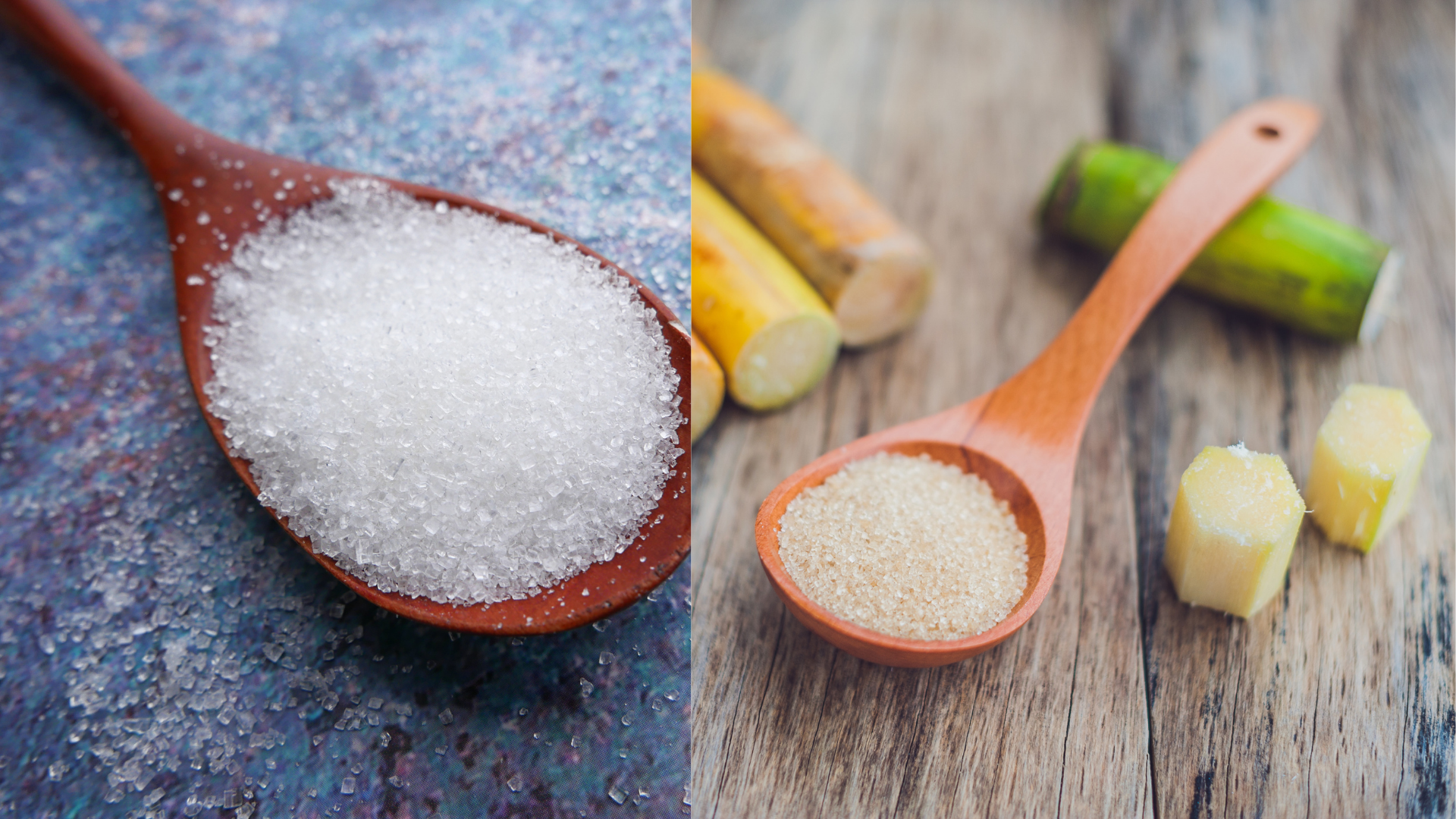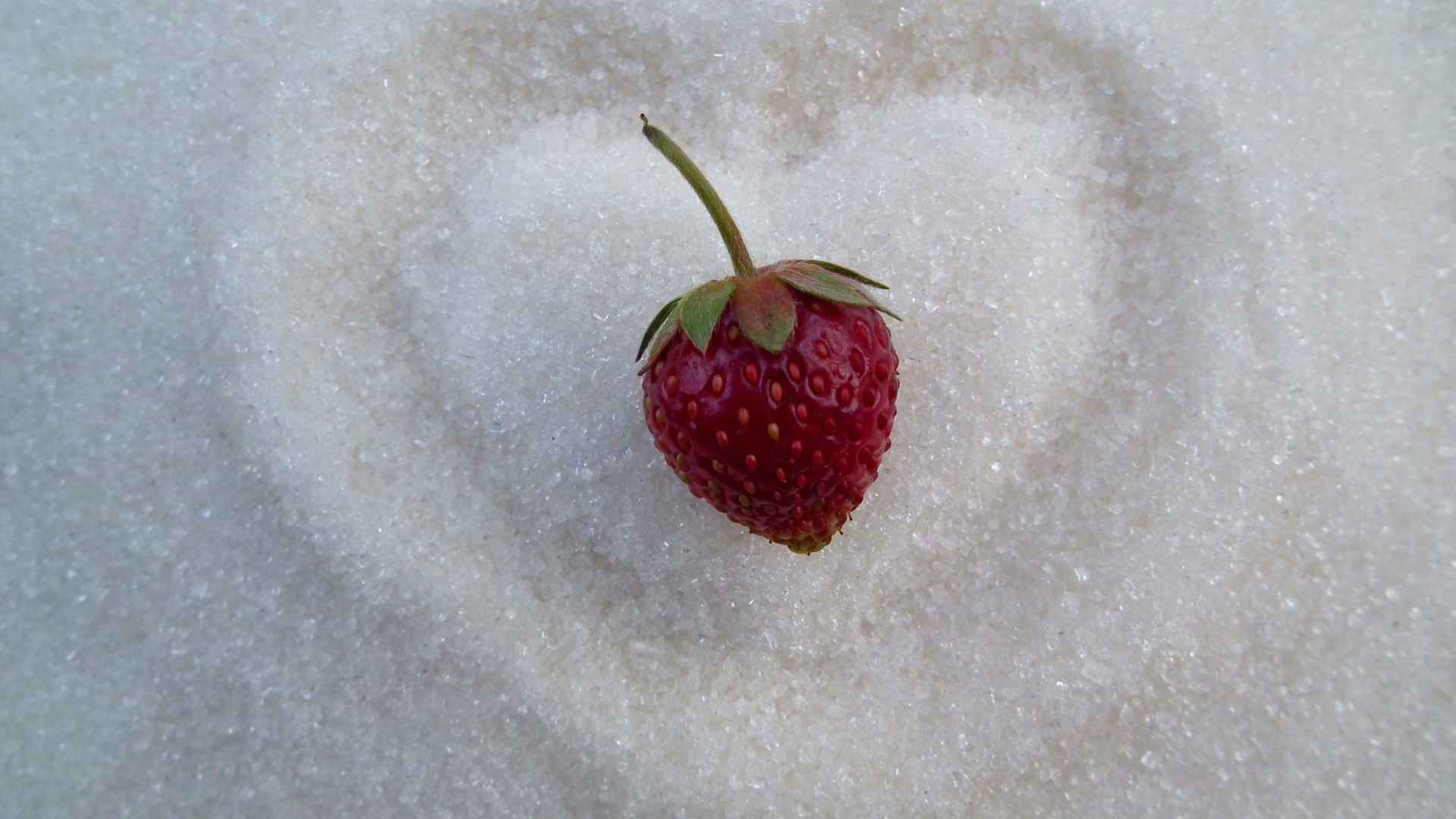When we talk about sugar as a dietary ingredient, we often refer to white sugar that we use daily to sweeten tea, bread, or desserts. However, there are multiple types of sugars, one of which is glucose sugar, a vital element in the body and a primary energy source. So, what is the difference between white sugar and glucose sugar? Which one is safer and more beneficial for health? And which is better for daily cooking recipes? This is what we will discuss in detail in this article.
What is white sugar?
White sugar, chemically known as sucrose, is a disaccharide composed of one glucose molecule bonded to one fructose molecule. It is usually extracted from plants such as sugarcane or sugar beet and refined in factories to produce pure white crystals that we use daily.
White sugar contains no vitamins or minerals and is often called "empty calories." Although it provides quick energy, it offers no significant nutritional benefits.
What is glucose sugar?
Glucose is a simple sugar or monosaccharide and is one of the fundamental building blocks of carbohydrates. The body produces it by digesting carbohydrates, and it naturally occurs in some foods like honey and fruits. It can also be manufactured industrially as a syrup used in food industries.
Glucose is directly used as an energy source in cells and is essential for brain, muscle, and vital organ functions. For this reason, it is used in hospitals for cases of low blood sugar or loss of consciousness as an emergency energy source.

The fundamental difference between white sugar and glucose
- Chemical structure
- White sugar (sucrose): a disaccharide composed of glucose + fructose.
- Glucose: a monosaccharide absorbed directly into the blood and used by the body without needing breakdown.
2. Effect on blood sugar levels
- Glucose: causes a rapid rise in blood sugar levels, so it should be used cautiously by diabetics.
- White sugar: contains fructose, which does not raise blood sugar as quickly as glucose but is metabolized in the liver and may cause metabolic issues over time.
3. Uses in cooking
- White sugar: used to sweeten drinks, make desserts, and baked goods.
- Glucose: used in confectionery to reduce crystallization and give a smooth texture but is less commonly used at home in the same form as white sugar.
Which is better for health?
Although glucose is the sugar the body relies on for energy, excessive intake in the diet can cause sudden spikes in blood sugar, stressing the pancreas and increasing diabetes risk.
White sugar’s biggest issue lies in its fructose content, which is linked to:
- Fatty liver
- Insulin resistance
- Obesity
- Heart disease
In this context, both types require moderation. There is no “healthy” sugar per se, but some types affect the body more negatively than others. It is best to reduce reliance on added sugars overall, whether sucrose or glucose.
Is glucose better to use in dessert recipes?
In the food industry, glucose syrup is used because it provides a smooth texture and prevents sugar crystallization, especially in caramel, marshmallows, and ice cream. However, it is not as sweet as white sugar and requires larger amounts to achieve the same level of sweetness.
For home cooking, white sugar is more common and easier to use. However, if you want to improve the texture of your recipe or reduce crystallization, glucose has a more professional application.
Sugar consumption worldwide
According to a report by the World Health Organization (WHO), the average global intake of added sugars per person is about 17 teaspoons daily, exceeding the recommended limit of no more than 6 teaspoons (or 25 grams). The report states that excessive sugar consumption contributes to around 1.6 million deaths annually related to obesity, diabetes, and heart disease.
This statistic highlights the significant impact of sugars on public health, whether from white sugar, glucose, or any other added sugar forms.

Frequently Asked Questions (FAQs)
- Is glucose better for diabetics than white sugar?
Not necessarily. Glucose raises blood sugar faster than white sugar, so it is generally recommended that diabetics avoid or use it very cautiously. Diabetics are advised to reduce all types of added sugars.
2. Does white sugar cause addiction?
Scientific studies indicate that white sugar, due to its effect on the brain’s reward system, can cause behavioral addiction, meaning you crave more without realizing it. This effect is less strong with glucose as it does not produce the same psychological impact.
3. Can white sugar be replaced by glucose in cooking recipes?
Yes, but the outcome may differ. Glucose is less sweet and alters the texture of recipes, so quantities must be adjusted and tested several times for the desired result.
4. What is corn syrup? Is it the same as glucose?
Corn syrup is a type of glucose syrup made from cornstarch but may also contain fructose, especially in its high-fructose corn syrup (HFCS) form, widely used in the food industry and harmful in large amounts.
5. Is glucose natural?
Yes, glucose naturally occurs in fruits, honey, and some vegetables. However, when produced industrially or used in large quantities as a food ingredient, it can have the same harmful effects as other sugars.
Suggested next topic: Your complete guide to the most popular types of cake: from sponge cake to luxurious chocolate cake.
Summary
Ultimately, the difference between white sugar and glucose sugar lies in their composition, effect on the body, and usage. There is no "healthy" sugar; excessive consumption of any type harms health. Although glucose is the body’s primary energy source, consuming it in large amounts as an added sweetener is not healthy.
The golden rule: moderation in sugar consumption and relying on natural carbohydrate sources such as fruits and vegetables is the best way to maintain your health and energy.
#WhiteSugar#GlucoseSugar#SugarTypesDifference#HealthAndNutrition#HealthyInfo #BalancedNutrition#HealthyRecipes#ArtificialSugar#NaturalSugar#HealthyLifestyle #SugarComparison #Diabetes #HealthySweet #SugarEffects

